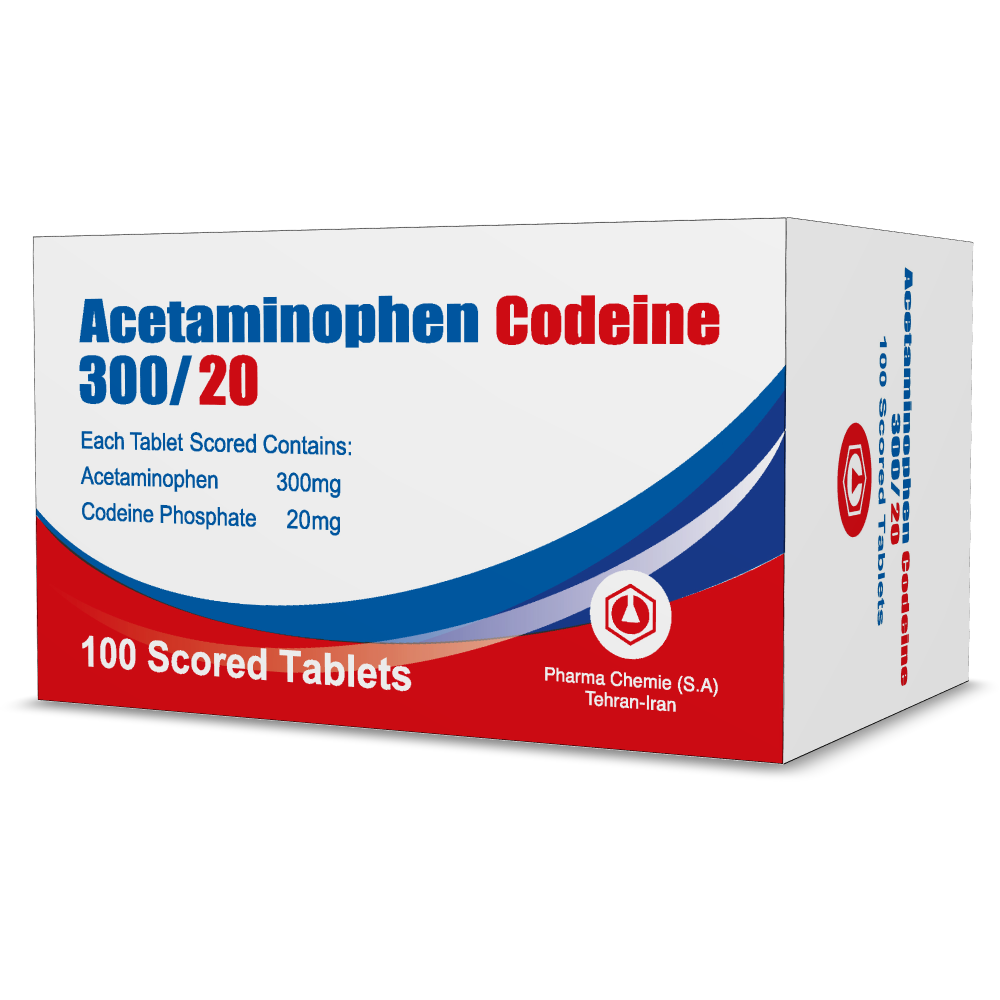Acetaminophen/Codeine Tablet
This combination medication is used to help relieve mild to moderate pain.
It contains an opioid pain reliever (codeine) and a non-opioid pain reliever (acetaminophen). Codeine works in the brain to change how your body feels and responds to pain. Acetaminophen can also reduce a fever.
- Indications
- Mechanism of action
- side effects
- Drug interactions
- Warnings
- Use in pregnancy and breastfeeding
- نظرات
Acetaminophen/Codeine tablets are prescribed for mild to moderate pain relief and to reduce fever. The combination of acetaminophen and codeine provides a dual mechanism of action. Codeine acts as an opioid analgesic, relieving pain and suppressing cough, while acetaminophen enhances pain relief and reduces fever. However, caution is advised due to the potential for opioid dependency with codeine and the risk of liver damage with excessive acetaminophen consumption. Always follow healthcare provider instructions and be vigilant about dosage. If any concerns or side effects arise, seek prompt medical attention
inhibits an enzyme in the central nervous system, reducing prostaglandin production and relieving pain and fever. Codeine, an opioid analgesic, converts to morphine in the liver and activates opioid receptors, providing additional pain relief and suppressing cough. The combination offers a synergistic effect for comprehensive pain management. Adherence to prescribed dosage and awareness of potential side effects, especially with codeine, are crucial
may cause drowsiness, constipation, nausea, and dizziness. Allergic reactions are rare but serious. Liver damage can occur with excessive acetaminophen intake. Prolonged codeine use may lead to dependency and withdrawal symptoms. Consult your healthcare provider if you experience any side effects and follow dosage guidelines carefully
When taking Acetaminophen/Codeine, be cautious of interactions with:
1. **Other Opioids or CNS Depressants:** Can increase CNS depression.
2. **MAO Inhibitors:** Risk of serotonin syndrome.
3. **Anticholinergic Medications:** Enhanced anticholinergic effects.
4. **Warfarin and Anticoagulants:** Increased risk of bleeding.
5. **Certain Antibiotics:** Possible reduction in codeine effectiveness.
6. **Medications affecting Liver Enzymes:** Influence on metabolism and clearance.
Always inform your healthcare provider about all medications to ensure safety and effectiveness.
When taking Acetaminophen/Codeine, be aware of potential risks:
1. **Liver Damage:** Avoid excessive acetaminophen.
2. **Dependency and Withdrawal:** Follow prescribed doses to prevent dependence.
3. **Respiratory Depression:** Exercise caution, especially with respiratory conditions.
4. **Avoid Alcohol and CNS Depressants:** Mixing can enhance sedation and respiratory effects.
5. **Pregnancy and Breastfeeding:** Consult a healthcare provider for guidance.
6. **Allergic Reactions:** Seek medical attention for signs of allergy.
7. **Interaction with Other Medications:** Inform healthcare providers of all medications to prevent potential interactions.
During pregnancy, Acetaminophen is generally considered safe, but caution is advised with Codeine use, especially in the third trimester. In breastfeeding, Acetaminophen is generally safe, but Codeine requires caution due to its potential passage into breast milk and variable metabolism, which may affect the infant. Individualized assessment, using the lowest effective dose, and monitoring for adverse effects are crucial, and consulting with a healthcare provider is recommended for personalized advice


هنوز نظری ثبت نشده
اولین نفری باشید که نظر میدهید
ثبت نظر